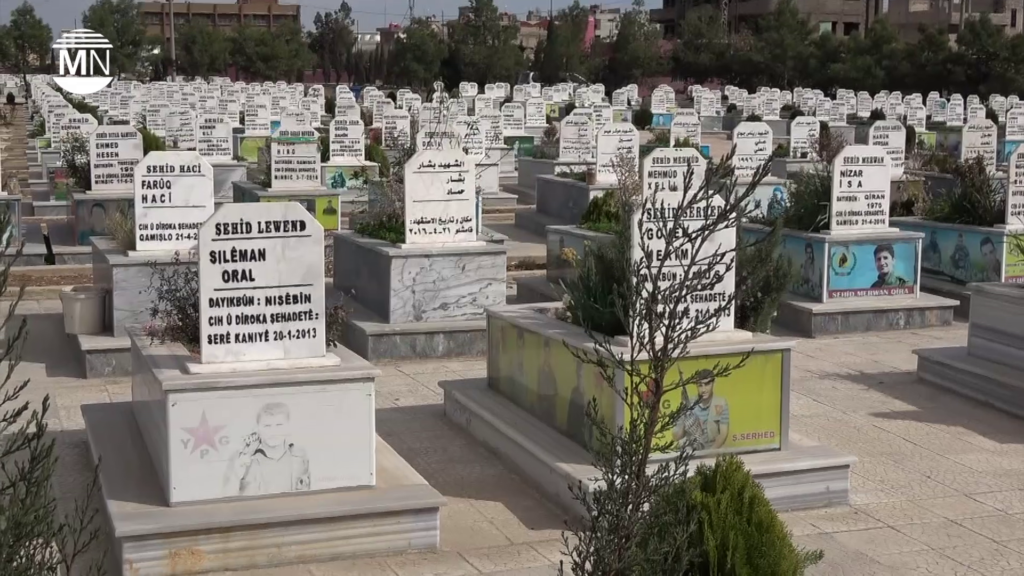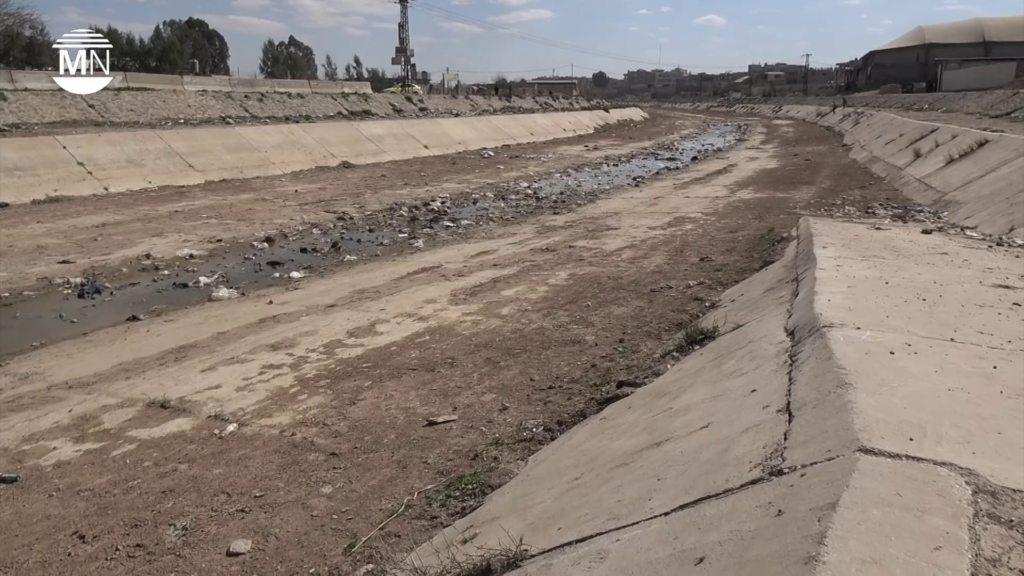In March 2023, a delegation of Belgian city councillors visited North and East Syria, the autonomous polity established on the basis of the Kurdish-majority region known as Rojava.
“The goal of the delegation is to strengthen ties between cities in Europe and Belgium and the cities of Rojava,” said David Dessers, vice-mayor of Leuven, a major Belgian city. Pierre Eyben, city councillor of Liege, which is also in Belgium, was struck by the isolation of Rojava, which he observed when the delegation passed through the Semalka border crossing after coming from Erbil in Iraqi Kurdistan.
“The [Kurdish-led administration] have purchased and paid for three ambulances that are today being blocked at the border. The authorities in Bashur [Iraqi Kurdistan] do not let them through. That’s absolutely incomprehensible and unacceptable,” he stated.

At the cemetery in Qamishlo for those who lost their lives in the war, families of the dead gave the Belgian delegation a warm welcome. Around 11,000 young Kurds, Arabs and members of other communities lost their lives in the fight against ISIS, while 15,000 were injured. Since 2020, dozens of persons have also been killed by Turkish drones. “Turkey has opened the gate to all kinds of terrorist militias,” said Fener Al Gahd, co-president of the Foreign Ministry of Autonomous Administration of North and East Syria (AANES).
At the women’s organisation Kongra-Star, a young woman from occupied Afrin told the Belgian delegation that Turkey is committing ethnic cleansing in the Afrin area: “Sometimes these criminals enter the houses at night and when a woman or a girl please them, they take her with them.” In the autonomous region, on the contrary, women play a very important role at all levels. At TEV-DEM, a union of associations and trade unions, representatives told the delegation that “thanks to the price control mechanisms that we have established, the economic situation in the autonomous region is better than in the rest of Syria.”
But the main economic problem is the shortage of water. In Heseke, those responsible for the Water Department have raised the alarm. The water pumping station in Allouk, near Sere Kaniye, normally distributes water across the entire area from Sere Kaniye to Heseke. It is now in the region occupied by Turkey, and pro-Turkish Syrian militias deliberately throttle the flow of water. To resolve this acute problem, the water department considers three solutions, but all of them are very costly: trucking in water from the north in water tanks with trucks, digging more wells, or bringing water from the Euphrates River in Deir Ezzor to Heseke.

Filip De Bodt, a city councillor in Herzele, Belgium, noted that “pipelines and drills can be purchased by NGOs and by the AANES, but they are then confronted with the embargo which prevents the import of materials. It’s depressing.” Beritan from AANES explained that the water shortage is linked to drought, partially caused by climate change, plus other factors. “The Khabour River in Heseke is very dry because Turkey stops the water flow. The river becomes a swamp, and people living near the water become sick,” she said. Meanwhile, though an international treaty requires Turkey to let 500m3 per second pass into Syria, but less than 200m3 per second arrives today.
The Belgian delegation concluded their five-day trip in Raqqa, where representatives of the Executive Council of the AANES said they conduct talks with Damascus, but without result. Abdul Hamid al-Mahbash, co-president of the Executive Council, explained to the delegation that the AANES have conducted multiple talks with the Syrian regime under the supervision of Russia, but nothing was achieved. “The Syrian regime wants to go back to the situation as it was before 2011,” he said. The AANES wants its right of self-determination written in a new Syrian constitution, providing a model for a federal, decentralized solution to the entire Syrian crisis.
In Raqqa, the delegation visited the central square or so-called “Hell Square”, now renamed “Paradise Square”. Pierre Eyben, city councillor of Liege, said: “This is the square where the Islamists who controlled the city put the heads of people they decapitated on spikes. Today it’s at the centre of a city that has spent five years rebuilding its infrastructure at a crazy speed and with crazy energy, despite very limited means. We have to do something for these people, that’s clear.”
Following their return to Belgium, members of the delegation are organising meetings to increase solidarity efforts with Rojava, and developing concrete projects with their city councils.










